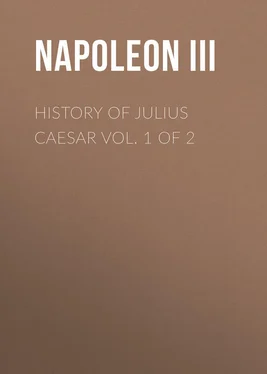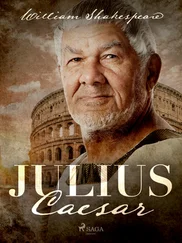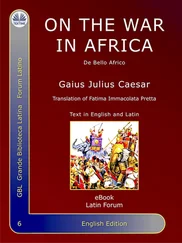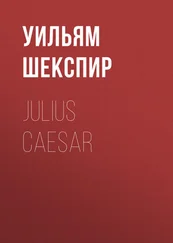Napoleon III - History of Julius Caesar Vol. 1 of 2
Здесь есть возможность читать онлайн «Napoleon III - History of Julius Caesar Vol. 1 of 2» — ознакомительный отрывок электронной книги совершенно бесплатно, а после прочтения отрывка купить полную версию. В некоторых случаях можно слушать аудио, скачать через торрент в формате fb2 и присутствует краткое содержание. Жанр: foreign_antique, foreign_prose, Биографии и Мемуары, на английском языке. Описание произведения, (предисловие) а так же отзывы посетителей доступны на портале библиотеки ЛибКат.
- Название:History of Julius Caesar Vol. 1 of 2
- Автор:
- Жанр:
- Год:неизвестен
- ISBN:нет данных
- Рейтинг книги:5 / 5. Голосов: 1
-
Избранное:Добавить в избранное
- Отзывы:
-
Ваша оценка:
- 100
- 1
- 2
- 3
- 4
- 5
History of Julius Caesar Vol. 1 of 2: краткое содержание, описание и аннотация
Предлагаем к чтению аннотацию, описание, краткое содержание или предисловие (зависит от того, что написал сам автор книги «History of Julius Caesar Vol. 1 of 2»). Если вы не нашли необходимую информацию о книге — напишите в комментариях, мы постараемся отыскать её.
History of Julius Caesar Vol. 1 of 2 — читать онлайн ознакомительный отрывок
Ниже представлен текст книги, разбитый по страницам. Система сохранения места последней прочитанной страницы, позволяет с удобством читать онлайн бесплатно книгу «History of Julius Caesar Vol. 1 of 2», без необходимости каждый раз заново искать на чём Вы остановились. Поставьте закладку, и сможете в любой момент перейти на страницу, на которой закончили чтение.
Интервал:
Закладка:
Strabo, XIV. 5.
427
In 558, Antiochus sent to sea a hundred covered vessels and two hundred light ships. (Titus Livius, XXXIII. 19.) – It is the greatest Syrian fleet mentioned in these wars. At the battle of Myonnesus, the fleet commanded by Polyxenus was composed of ninety decked ships (574). (Appian, Wars of Syria , 27.) – In 563, before the final struggle against the Romans, that prince had forty decked vessels, sixty without decks, and two hundred transport ships. (Titus Livius, XXXV. 43.) – Finally, the next year, a little before the battle of Magnesia, Antiochus possessed, not including the Phœnician fleet, a hundred vessels of moderate size, of which seventy had decks. (Titus Livius, XXXVI. 43; XXXVII. 8.) – This navy was destroyed by the Romans.
428
Herodotus, II. 177. – Diodorus Siculus, I. 31.
429
A measure great enough to make thirty loaves. (Franz, Corpus Inscript. Græcarum , III. 303. – Polybius, V. 79.)
430
Böckh, Staatshaushaltung der Athener , I. xiv. 15.
431
Flavius Josephus, Jewish Antiquities , XII. 4.
432
Athenæus, V. p. 203.
433
Appian ( Preface , § 10). – We may, nevertheless, judge from the following data of the enormity of the sums accumulated in the treasuries of the kings of Persia. Cyrus had gained, by the conquest of Asia, 34,000 pounds weight of gold coined, and 500,000 of silver. (Pliny, XXXIII. 15.) – Under Darius, son of Hystaspes, 7,600 Babylonian talents of silver (the Babylonian talent = 7,426 francs [£297]) were poured annually into the royal treasury, besides 140 talents devoted to the pay of the Cilician cavalry, and 360 talents of gold (14,680 talents of silver), paid by the Indies. (Herodotus, III. 94.) – This king had thus an annual revenue of 14,500 talents (108 millions of francs [£4,320,000]). Darius carried with him in campaign two hundred camels loaded with gold and precious objects. (Demosthenes, On the Symmories , p. 185, xv. p. 622, ed. Müller.) – Thus, according to Strabo, Alexander the Great found in the four great treasuries of that king (at Susa, Persia, Pasargades, and Persepolis) 180,000 talents (about 1,337 millions of francs [£53,480,000]).
434
Polybius, V. 89.
435
Strabo, XVII. 1.
436
Strabo, XVII. 1.
437
Strabo, XVI. 4; XVII.
438
Strabo, XVII. 1.
439
Diodorus Siculus, III. 43.
440
Appian, Preface , § 10. – In 537, at Raphia, the Egyptian army amounted to 70,000 foot, 5,000 cavalry, and 73 elephants. (Polybius, V. 79; see also V. 65.) – Polybius, who gives us these details, adds that the pay of the officers was one mina (97 francs [£3 17 s. 7 d. ]) a day. (XIII. ii.)
441
Theocritus, Idylls , XVII. lines 90-102. – Athenæus (V. 36, p. 284) and Appian, Preface , § 10, give the details of this fleet. – Ptolemy IV. Philopator went so far as to construct a ship of forty ranges of rowers, which was 280 cubits long and 30 broad. (Athenæus, V. 37, p. 285.)
442
Herodotus, IV. 199. The plateau of Barca, now desert, was then cultivated and well watered.
443
The most important object of commerce of the Cyrenaica was the silphium , a plant the root of which sold for its weight in silver. A kind of milky gum was extracted from it, which served as a panacea with the apothecaries and as a seasoning in the kitchen. When, in 658, Cyrenaica was incorporated with the Roman Republic, the province paid an annual tribute in silphium. Thirty pounds of this juice, brought to Rome in 667, were regarded as a miracle; and when Cæsar, at the beginning of the civil war, seized upon the public treasury, he found in the treasury chest 1,500 pounds of silphium locked up with the gold and silver. (Pliny, XIX. 3.)
444
Diodorus Siculus, III. 49. – Herodotus, IV. 169. – Athenæus, XV. 22, p. 487; 38, p. 514. – Strabo, XVII. iii. 712. – Pliny, Natural History , XVI. 33; XIX. 3.
445
Pindar, Pythian Odes , IV. 2. – Athenæus, III. 58, p. 392.
446
Diodorus Siculus, XVII. 49.
447
Aristotle, Politics , VII. 2, § 10.
448
Josephus, Jewish Antiquities , XIII. 12, § 2, 3.
449
Ælian, History of Animals , V. lvi. – Eustathius, Comment. on Dionysius Periegetes , 508, 198, edit. Bernhardy.
450
Strabo, XIV. 6. – Pliny, Natural History , XXXIV. 2.
451
Virgil, Æneid , I. 415. – Statius, Thebais , V. 61.
452
Strabo, X. 4.
453
Polybius, XIII. 8.
454
Cretan mercenaries are found in the service of Flamininus in 557 (Titus Livius, XXXIII. 3), in that of Antiochus in 564 (Titus Livius, XXXVII. 40), in that of Perseus in 583 (Titus Livius, XLII. 51), and in the service of Rome in 633.
455
Iliad , II. 656.
456
Polybius, XXX. 7, year of Rome 590.
457
Strabo, XIV. 2. The town of Rhoda in Spain, establishments in the Baleares, Gela in Sicily, Sybaris and Palæopolis in Italy, were Rhodian colonies.
458
This happened especially at the epoch when the famous Colossus of Rhodes fell, and when the town was violently shaken by an earthquake. Hiero, tyrant of Syracuse, Ptolemy, king of Egypt, Antigonus Doson, king of Macedonia, and Seleucus, king of Syria, sent succours to the Rhodians. (Polybius, V. 88, 89.)
459
We see, in fact, with what care the Rhodians spared their allies on the coast of the Pontus Euxinus. (Polybius, XXVII. 6.)
460
Polybius, IV. 38.
461
Strabo, VII. 4.
462
Titus Livius, XXXIII. 18.
463
During the siege of Rhodes, Demetrius had formed the design of delivering to the flames all the public buildings, one of which contained the famous painting of Ialysus, by Protogenes. The Rhodians sent a deputation to Demetrius to ask him to spare this masterpiece. After this interview, Demetrius raised the siege, sparing thus at the same time the town and the picture. (Aulus Gellius, XV. 31.)
464
In 555, twenty ships; in 556, twenty vessels with decks; in 563, twenty-five ships with decks, and thirty-six vessels. This last fleet of thirty-six vessels was destroyed, and yet the Rhodians were able to send to sea again, the same year, twenty vessels. In 584 they had forty vessels. (Titus Livius, XXXI. 46; XXXII. 16; XXXVI. 45; XXXVII. 9, 11, 12; XLII. 45.)
465
Pliny, XXXIV. 17.
466
Strabo, XIV. 2.
467
Athenæus, XII. 35, p. 461.
468
Titus Livius, XXIII. 34.
469
Titus Livius, XXIII. 40.
470
Интервал:
Закладка:
Похожие книги на «History of Julius Caesar Vol. 1 of 2»
Представляем Вашему вниманию похожие книги на «History of Julius Caesar Vol. 1 of 2» списком для выбора. Мы отобрали схожую по названию и смыслу литературу в надежде предоставить читателям больше вариантов отыскать новые, интересные, ещё непрочитанные произведения.
Обсуждение, отзывы о книге «History of Julius Caesar Vol. 1 of 2» и просто собственные мнения читателей. Оставьте ваши комментарии, напишите, что Вы думаете о произведении, его смысле или главных героях. Укажите что конкретно понравилось, а что нет, и почему Вы так считаете.












